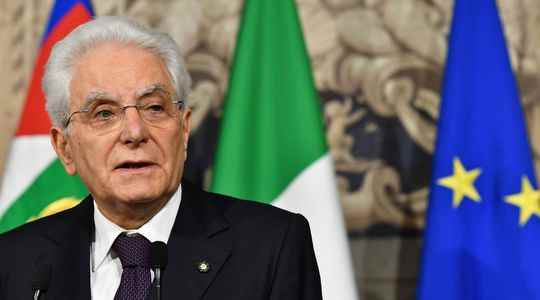The re-election for 7 years of Sergio Mattarella as President of the Republic is a guarantee of stability for Italy and its allies. Europeanist and Atlanticist, this Christian Democrat close to the left imposed himself on the great voters of Parliament (deputies, senators and representatives of the Regions) reluctantly. The President, whose first term expires on February 3, wanted to step down.
But in the 8th ballot, he appeared to be the only personality capable of uniting the votes of all the parties in the government coalition. However, he had said goodbye several times and moved his boxes to move from the Quirinal Palace to a private apartment in Rome, near the Villa Borghese. Literally begged, on January 29, by the leaders of the political groups in Parliament to remain in his post, Sergio Mattarella, 80, agreed, visibly without enthusiasm, “not to shirk his responsibilities out of duty”, but to condition: that the parties present in the government of Mario Draghi continue to collaborate.
With him, Italy retains a unanimously respected Head of State and, in government, the Prime Minister who was able to convince Europeans that his country was capable of using the recovery plan of which he is the main beneficiary (200 billion euros in six years). What reassure the European allies and the financial markets, always quick to doubt the ability of Italy to support its colossal indebtedness.
But under what conditions will Mario Draghi be able to continue his journey? He will have to move forward with those of his ministers who refused to support his own candidacy for his presidency and rely on others who, on the very evening of the re-election of the Head of State, were already calling for a “review” of the within the executive, without specifying their expectations. The rumor of a possible resignation of Giancarlo Giorgetti (League), the Minister of Economic Development, has become insistent. It was later denied.
Deliquescent parties
However, no one in Rome has any illusions. In this black week of the country’s democratic life, we saw parties failing and leaders unable to get their candidates through (they had about ten), disavowed by their troops. The context was certainly difficult with a parliament without a majority and a multitude of rival factions. From small lies to big betrayals, from missed tactical moves to illusory double games, some leaders have particularly disappointed their troops and will find it difficult to maintain themselves. Like Matteo Salvini, seriously contested within the League or, worse, former Prime Minister Giuseppe Conte, now totally discredited leader of a Five Star Movement on the brink of splitting, where Foreign Minister Luigi Di Maio won a decisive influence. One year before the legislative elections, some have every interest in launching an electoral campaign as quickly as possible to make people forget their poor performance. Matteo Salvini has already gone on the offensive. If the government is safe, it is only for a few months, predict the most optimistic.
Balkanization of the right
With the withdrawal from play of Silvio Berlusconi, hospitalized in emergency in Milan on the eve of the election, Salvini tried to take the head of what is called in Italy the center-right, in fact an alliance which goes from Europeanists from Forza Italia to the sovereignists of the League and to the extreme right of Fratelli d’Italia, the party of Giorgia Meloni who remained in opposition. Coalition formations successfully in the regional and local elections and to which the polls predicted a solid majority in the next legislative elections. But for these, the week turned into a game of massacre. By attempting a palace deal with the Five Stars and the Democratic Party, the leader of the League has drawn the wrath of his friends. Berlusconi was the first to unpin: his party will now go it alone. By pressing ultimately the re-election of Sergio Mattarella, the leader of the League, has unleashed the fury of Giorgia Meloni for whom, after this week, “the center right has ceased to exist and must be refounded”.
Democracy the big loser
To protect the “big coalition” around Mario Draghi, there had to be no winner or loser in this election. Sergio Mattarella alone – elected with 759 votes out of 1009 grand electors – has the neutrality required to save the balance in place. But the fiasco of the parties and the balkanization of the right will certainly not remobilize the Italian electorate. And if the big loser of the operation was simply democracy?
